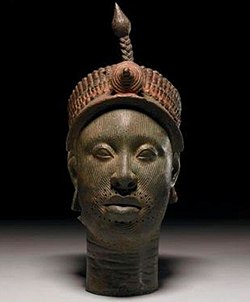Tribe of the Yoruba people

| Part of a series on |
| Yorùbá people |
|---|
 |
Subgroups
|
Geography |
Festivals /events
|
Notable personalities |
The Awori is a subgroup of the Yoruba people of (heterogeneous origin) speaking a dialect of the Yoruba language.

| Part of a series on |
| Yorùbá people |
|---|
 |
Subgroups
|
Geography |
Festivals /events
|
Notable personalities |
The Awori is a subgroup of the Yoruba people of (heterogeneous origin) speaking a dialect of the Yoruba language.
Traditionally, the Awori are found in Lagos State, Nigeria. [1] [2]
In a 1935 Intelligence Report on the Badagry district anthropologist W.G. Wormalin said the Awori spoke a "slurred dialect" of Yoruba and mostly farmed and fished. [3]
Precolonial Yoruba states of Yorubaland | ||
|---|---|---|
Yoruba topics | |||||||
|---|---|---|---|---|---|---|---|
| History | |||||||
| Subgroups | |||||||
| Yoruboid languages | |||||||
| Politics | |||||||
| Geography (Yorubaland) |
| ||||||
| Demographics | |||||||
| Culture | |||||||
| Education & philosophy | |||||||
| Yoruba Wikipedia | |||||||
| National | |
|---|---|
| Other | |